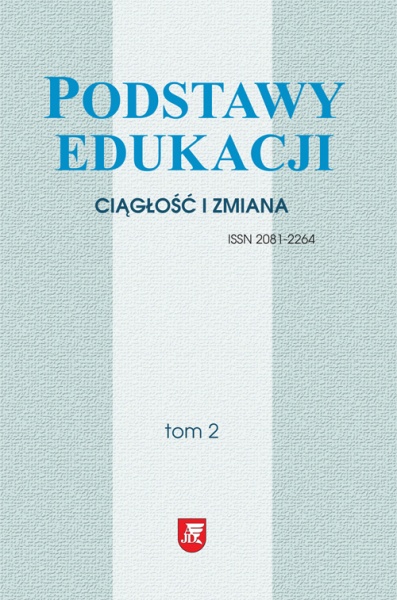Abstract
The school through its curriculum and internal rules reveals its specific attitude towards everyday reality. School limits students’ cognition to the demanded extent and quite often separates cognition from the activities required by the everyday life. Consequence of curricular detachment schools from the practical needs of everyday life is that school education is not conducive to direct and natural contacts between young people and social, cultural reality. Not only that restricts these contacts to the designated stream, it makes them through designated and imposed symbols, signs and abstractions too. Moreover, the school creates specific conditions for learning and shuts students in a strange environment, which quite often has little in common with everyday reality. Why the school shows such a relationship to everyday reality? What functions require the school to educate students in such isolation from everyday life and to direct their attention to the universal issues, often involving abstractions and symbols? The article considers these questions in two perspectives: evolutionary and cultural.
References
Autio, T. (2003). Postmodern Paradoxes in Finland. The Confinements of rationality in Curriculum Studies. W: W. F. Pinar (red.). Interantional Handbook of Curriculum Research. Mahwah, N. J.
Bruner, J. S. (1978). Poza dostarczone informacje: studia z psychologii poznawania. B. Mroziak (tłum.). Warszawa.
Dewey, J. (1972). Demokracja i wychowanie: wstęp do filozofii wychowania. Z. Doroszowa (tłum.). Wrocław.
Foley, R. (2001). Zanim człowiek stał się człowiekiem. K. Sabath (tłum.). Warszawa.
Husén, T. (1979). The School in Question. A Comparative Study of School and its Future in Western Society. Oxford.
Kunicki-Goldfinger, W. (1993). Znikąd donikąd. Warszawa.
Ornstein, A. C., Hunkins, F. P. (1998). Program szkolny. Założenia, zasady, problematyka. K. Kruszewski (tłum.). Warszawa.
Tomasello, M. (2002). Kulturowe źródła ludzkiego poznawania. J. Rączaszek (tłum.). Warszawa.
I am aware that the journal is published under the Creative Commons Attribution License (https://creativecommons.org/licenses/by/4.0/legalcode).
By submitting an article, I agree to make it available under this license.
